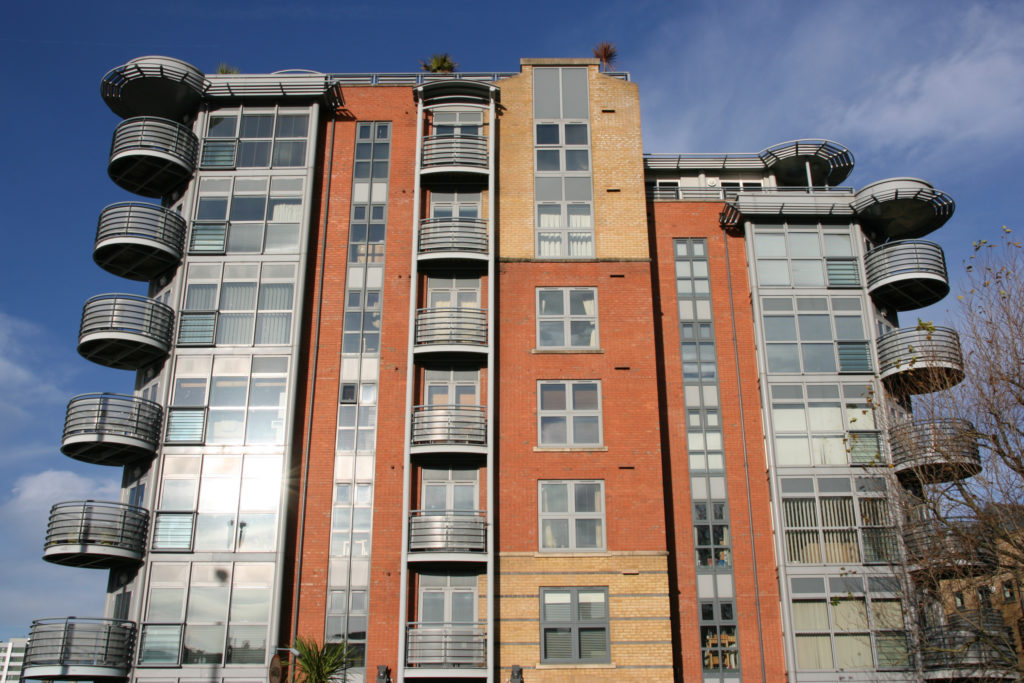What are service charges?
A service charge is a fee collected by landlords to pay for property maintenance. If you own a leasehold flat, your landlord has certain responsibilities for your property such as repairs, general upkeep and insurance. These are set out in the lease agreement and are covered by service charges – which are payable periodically depending on what has been agreed.
It is increasingly common practice for service charges to be collected in advance annually, so any calculations will anticipate costs incurred in the coming year. Because of this – and because many of the costs covered apply not only to your flat, but to the wider building and communal areas – there is an element of estimation in the way they are calculated. This practice may at times make the service charge look excessively costly, but it can prevent unexpectedly large bills in the event of major repairs.
Typically, service charges for flats tend to be in the region of £1,000 to £2,000 per year – however, they can often exceed £2,000 for new-build flats and flats in London.
It is important to understand how an average service charge is reached so that you can be sure that the price you are paying is fair and proportionate.
How to calculate average service charges
It is important to understand how an average service charge is reached so that you can be sure that the price you are paying is fair and proportionate.
Generally, the costs covered by service charges can be split into three categories.
- Day-to-day costs. These include cleaning of communal areas, insurance and wages for any staff working in the building
- Cyclical expenses. These cover tasks which come up infrequently but still routinely, such as exterior and interior decoration or maintenance of drains and pipes
- Reserve funds. Also known as a sinking fund, it covers the kind of larger and costlier repairs that can crop up unexpectedly, such as roof or window frame replacement or structural works
However, additional factors may affect the variations in an average service charge from one year to another.
- Major repairs may not be covered, or may only be partially covered, by a reserve fund
- Particular services may be added or withdrawn over the course of the year
- Costs from the previous year may have been factored in too late
- Management may introduce changes in how the cost is shared between all leaseholders in the building
- The management fees being paid by the landlord may increase
- Some leaseholders may not be asked to contribute to a sinking fund until they are several years into their residency
A lease agreement should state clearly how service charges are to be apportioned between all residents of the building. This may be based on a simple calculation, such as five flats each paying 20% of total service charges, or it may depend on more variable factors such as number of bedrooms.
What is the average service charge for a flat in the UK?
Typically, service charges for flats tend to be in the region of £1,000 to £2,000 per year – however, they can often exceed £2,000 for flats in London and new-build flats. The service charge is based on an estimate of the running costs for communal areas of a property, therefore it is dependent on the size, location and age of the building. New building developments now often feature a wide range of communal amenities such as gyms, pools and loans — all which lead to a rise in the service charge.
Why are my service charges so expensive?
It is increasingly common practice for service charges to be collected in advance annually, so any calculations will anticipate costs incurred in the coming year. Because of this – and because many of the costs covered apply not only to your flat, but to the wider building and communal areas – there is an element of estimation in the way they are calculated. This practice may at times make the service charge look excessively costly, but it can prevent unexpectedly large bills in the event of major repairs.
To put it simply, service charges are based on the size of a property. Each property is given a living space factor, which is compared to the total living space factors of the block. This allows your share of the total block charge to be calculated. Therefore, the bigger the property, the more service charge you can expect to pay. Furthermore, Landlord insurance provider “Direct Line for Business” found that service charges for newbuilds are 96% higher than for older properties.
Do I have to pay the average service charge?
As a leaseholder you must abide by whatever service charge agreement has been set out in the lease agreement. However, there are certain obligations that your landlord must fulfil when requesting service charges.
Any service charge demand notice must include a “summary of rights and obligations”. In cases where this is absent, the leaseholder has the right to refuse to pay until a proper service charge demand is supplied.
Can I dispute my service charge?
Where a landlord has overestimated the average service charge, it is up to them to decide whether to refund the difference, transfer it to the reserve fund or hold it as a credit for the following year – however, this must be clearly set out in the lease agreement. If you would like to actively dispute your service charge, you have the right to apply to the First-tier Tribunal. Here a decision can be made on whether the proposed charge is reasonable. The law cannot define what a reasonable charge is, however the tribunal will make their decision based on the evidence they are presented with.

